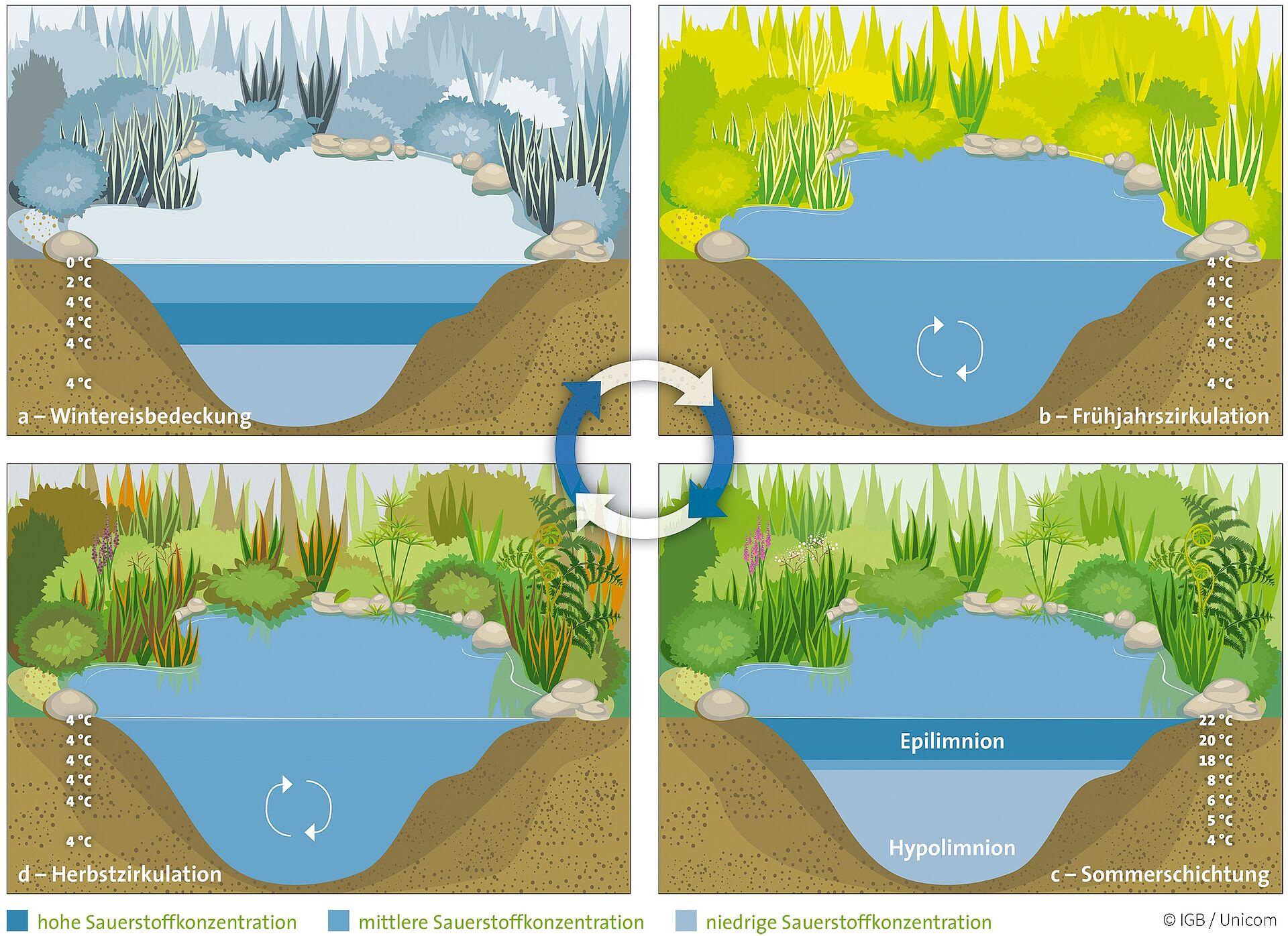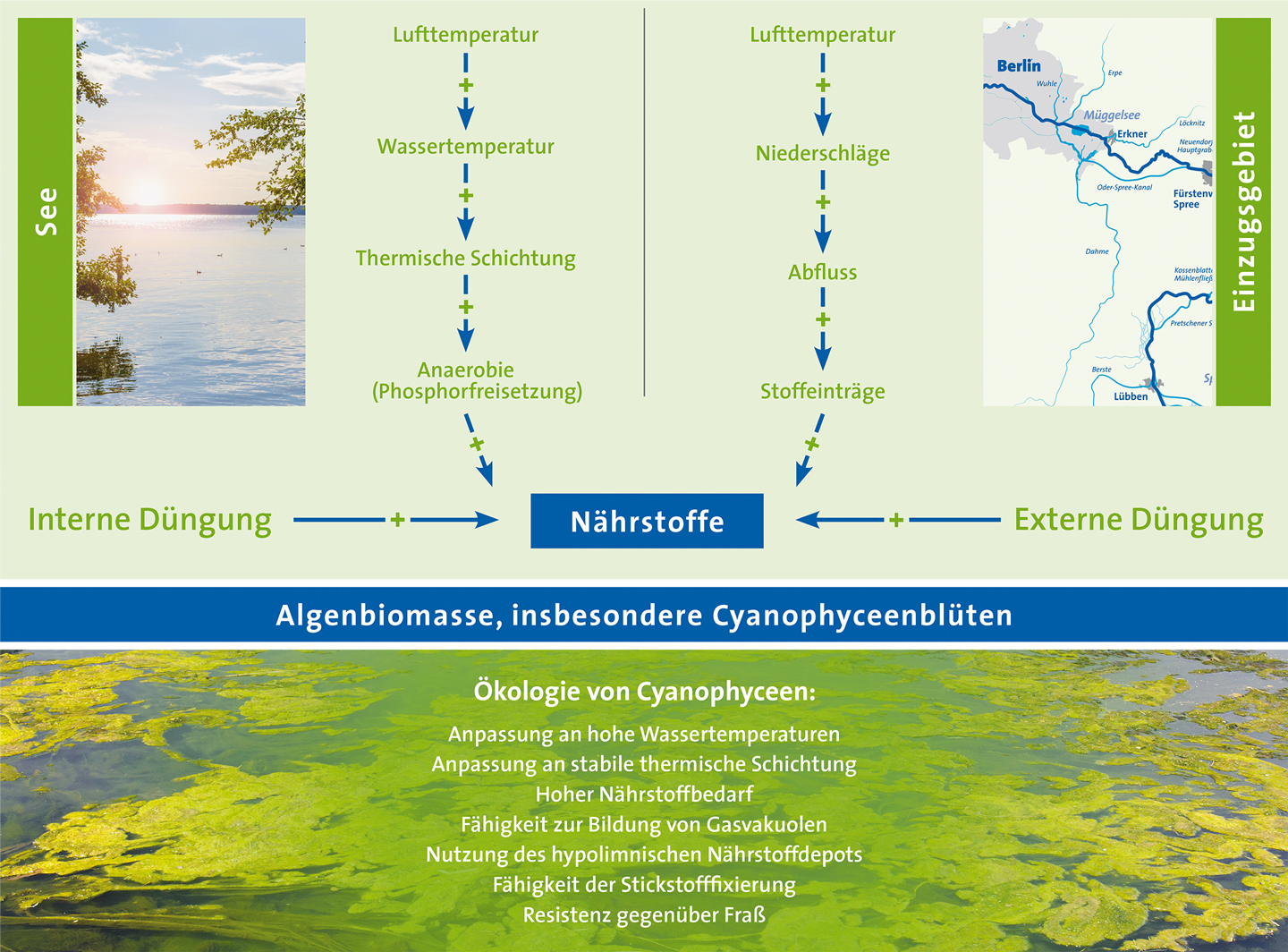Alarming increase in temperature in recent decades
In the new IGB Dossier, scientists warn that the general trend towards higher temperatures induced by climate change is a problem for our lakes. Since 1985, scientists have registered an average increase of 0.34°C per decade in the temperature of lakes throughout the world in summer. “Consequently, surface water temperatures have increased more considerably and rapidly than comparable air temperatures,” explained Rita Adrian, Head of IGB’s Department of Ecosystem Research and co-author of the Dossier.
Lakes under climate stress
Higher water temperatures and less winter ice formation, lasting for shorter periods, are direct consequences of climate change. “However, we are even more concerned about indirect effects, such as impacts on light, oxygen, and nutrient dynamics, which may have a major influence on lake ecosystems,” explained Tom Shatwell, co-author and IGB scientist. Greater inflow from the catchment area in high-precipitation areas also leads to an increase in the contamination of freshwaters with nutrients.
Depending on the type of lake and their catchment area, these waters react differently to such circumstances. “Lakes are ecosystems featuring complex interrelations and processes. In the new IGB Dossier, we therefore provide a universally comprehensible explanation of the underlying natural processes, highlighting how our freshwaters may change as a consequence of climate change,” added Rita Adrian.
Both authors agree that blanket statements are virtually impossible in this respect. One thing is for certain, however: besides rising water temperatures, there will primarily be lower oxygen concentrations and an altered stratification in summer, which, owing to “lake-internal fertilisation”, could lead to the release of even more nutrients. Such effects promote excessive growth of algae, especially the development of Cyanophyceae, commonly referred to as “blue-green algae”. Rising temperatures also cause heat-tolerant species to spread further north, displacing cold-adapted species.


